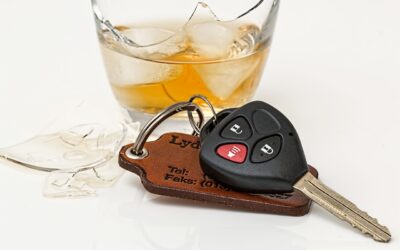Understanding Criminal Forfeiture in Minnesota
Criminal forfeiture occurs when the state takes a person’s property in connection with a crime. For example, if a vehicle was used to transport illegal drugs, the state of Minnesota could seize the vehicle as part of the criminal trial and investigation. In that criminal forfeiture scenario, the person “forfeits” their property (the vehicle) to the state. If you’re facing criminal forfeiture, don’t do it alone. Make sure you have an experienced criminal forfeiture attorney at your side to advocate for your rights and fight for a favorable outcome.
The Difference Between Criminal Forfeiture and Civil Forfeiture
Criminal forfeiture is the seizing of property directly linked to criminal activity. Civil forfeiture, however, occurs when the state seizes property in connection with certain crimes like drug offenses, DWI, prostitution, or fleeing police. In other words, they “bring charges” against your property. Civil forfeiture in Minnesota is an extremely complex subject. According to the National Institute for Justice, Minnesota earned a D+ on its use of civil forfeiture. Since civil forfeiture isn’t directly connected to the criminal prosecution, its implementation can be subjective, which leads to an overextension of its true purpose. According to the Institute for Justice, “Minnesota ranks 19th for federal forfeiture, with nearly $26 million in Department of Justice equitable sharing proceeds from 2000 to 2013.”
When Does Criminal Forfeiture Occur?
The State of Minnesota often invokes criminal forfeiture when:
- The defendant has been convicted of, or is being prosecuted for a crime; and
- The property has a strong enough connection to the crime to justify taking it
- Commonly seized assets and property in criminal forfeiture actions can include:
- Houses;
- Businesses and/or business assets;
- Cars, motorcycles, recreational vehicles; and
- Other types of property
Criminal forfeiture often applies to certain offenses more than others, like drug trafficking, racketeering, or illegal gambling. When a property is attained through criminal means, this may constitute grounds for forfeiture. For example, if a home was purchased using laundered money, the home could be fair game for the government seizure.
Looking for a Minnesota Criminal Forfeiture Attorney?
The skilled attorneys at Sieben Edmunds Miller have the experience and knowledge to advocate for clients facing criminal forfeiture in Minnesota. We know you didn’t plan on this, so trust our legal team to listen to your story, hear your concerns, create a plan of action, and fight for the return of your property or assets. Contact our Minneapolis Criminal Defense Lawyers and St.Paul Criminal Defense Lawyers by calling (651) 994-6744 or filling out our online contact form.
Get a Free Case Evaluation
We are here to help. Let us evaluate your case for you. Free of charge – no obligation. Complete our free case evaluation form or call us directly at (651) 323-2464.
Recent Blog Posts
How to Expunge a DWI Conviction in Minnesota
Expunging a DWI (Driving While Intoxicated) conviction can significantly improve your future personal and professional prospects by clearing your criminal record. In Minnesota, the process of expungement involves several legal steps and requires a thorough...
First-Time DUI Offense in Minnesota: What to Expect and How to Prepare
Facing a first-time DUI offense in Minnesota can be an overwhelming and stressful experience. Understanding the process, potential penalties, and how to best prepare your defense can significantly impact the outcome of your case. This blog will act as a thorough...
What Is Minnesota’s Open Container Law?
Minnesota’s Open Container Law is an important piece of legislation aimed at enhancing road safety and reducing alcohol-related accidents. This law prohibits the possession and consumption of open alcoholic beverages in the passenger area of motor vehicles....
Can You Get a DUI on Prescription Medication in Minnesota?
Driving under the influence (DUI) is often associated with alcohol consumption, but it’s important to understand that DUI laws also include driving under the influence of drugs, including prescription medications. In Minnesota, it is possible to be charged with...
Navigating Drug Offenses in Minnesota: Understanding Charges and Legal Options
Drug offenses are complex legal matters that can have profound implications for individuals involved in such cases. In Minnesota, understanding the severity of these charges and the legal options available is crucial for anyone facing allegations related to drug...
8 Strategic Approaches to Reduce Your Criminal Sentence in Minnesota
Navigating a criminal charge in Minnesota can be an overwhelming experience, but understanding the strategic approaches available to reduce your sentence can significantly impact the outcome of your case. At Sieben Edmunds Miller, our team of dedicated criminal...
Free Case Evaluation
Contact Info
Note: The use of the Internet or this form for communication with the firm or any individual member of the firm does not establish an attorney-client relationship. Confidential or time-sensitive information should not be sent through this form.





